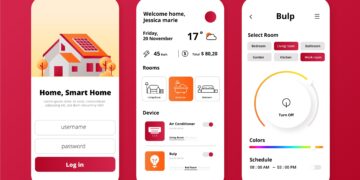When organizing an outdoor event, maintaining a comfortable temperature is essential, especially in hot and humid conditions. Many event planners invest in high-powered air conditioning units to keep guests cool, but sometimes, these air conditioners fail to deliver the expected comfort. This situation raises a crucial question:
Why do some outdoor event air conditioner fail to keep guests comfortable, even when they have high cooling power?
The answer lies in multiple factors beyond just the cooling capacity of the air conditioner. Several environmental, technical, and strategic elements influence how effective an outdoor event air conditioning system will be. Below, we will explore these factors in depth.
1. Poor Placement and Airflow Management
One of the biggest reasons an outdoor event air conditioner may not provide sufficient cooling is improper placement. Unlike indoor air conditioning, which benefits from enclosed spaces and stable airflow, outdoor air conditioners operate in open areas where air can easily escape.
- Wrong Positioning: If the unit is placed in an area where cool air is not directed toward the guests, the cooling effect will be minimal.
- Blocked Airflow: Objects such as tents, walls, or furniture may obstruct airflow, preventing cold air from reaching the guests efficiently.
- Wind Interference: Natural wind patterns can push cool air away from the seating area, reducing its effectiveness.
To maximize cooling, air conditioners should be strategically placed where cool air can circulate freely while avoiding obstructions.
2. Lack of Proper Enclosures or Insulation
Outdoor event air conditioning works best when there is some level of enclosure. If the event is completely open-air, cold air can easily dissipate, making it difficult to maintain a comfortable temperature.
- No Tents or Canopies: Direct exposure to the sun can make cooling ineffective as the cold air quickly mixes with hot air.
- Heat Absorption by Surroundings: Asphalt, concrete, and metal surfaces absorb heat and radiate it back, counteracting the cooling effect.
- No Side Coverings: If there are no side barriers, the air conditioner has to work harder to cool a larger, uncontained area.
Using enclosed tents or at least partially covered areas helps retain cool air, improving the efficiency of outdoor air conditioning.
3. Incorrect Sizing of Air Conditioners
Even a high-power air conditioner can fail if it is not the right size for the event space. Many people assume that bigger units automatically mean better cooling, but that is not always the case.
- Oversized Units: If an air conditioner is too powerful for the space, it may cool the air too quickly without reducing humidity, leading to a damp and uncomfortable environment.
- Undersized Units: If the unit is too small, it will struggle to maintain a low temperature, especially in large gatherings with many guests.
- Miscalculation of Cooling Load: Factors such as the number of guests, type of event, heat from lighting, and cooking stations should be considered when selecting an air conditioner.
A professional calculation of BTU (British Thermal Units) requirements ensures the right size air conditioning unit is used.
4. Ignoring Humidity Control
Temperature is only part of the equation when it comes to comfort. Humidity levels play a crucial role in how cool or warm an environment feels.
- High Humidity: Even if the temperature is lowered, high humidity can make the air feel sticky and uncomfortable.
- Lack of Dehumidification: Some air conditioning units cool air without effectively reducing humidity, making guests feel sweaty instead of refreshed.
- Poor Air Circulation: If humid air is not properly circulated or extracted, it can create an uncomfortably warm environment.
Using air conditioners with built-in dehumidifiers or additional ventilation systems can improve comfort by controlling humidity levels.
5. Overcrowding and Heat Sources
Outdoor events often involve large crowds, lighting setups, and catering services, all of which generate heat. Even a powerful air conditioning unit may struggle to cool the space if there are too many heat sources.
- Body Heat: A large number of people generate body heat, raising the overall temperature.
- Stage and Lighting Equipment: Stage lights, projectors, and sound systems produce significant heat, reducing the effectiveness of air conditioning.
- Cooking and Catering Stations: Outdoor kitchens, food stalls, and BBQ stations emit heat, making cooling more difficult.
Strategic positioning of air conditioners, fans, and ventilation can help counteract these heat sources.























